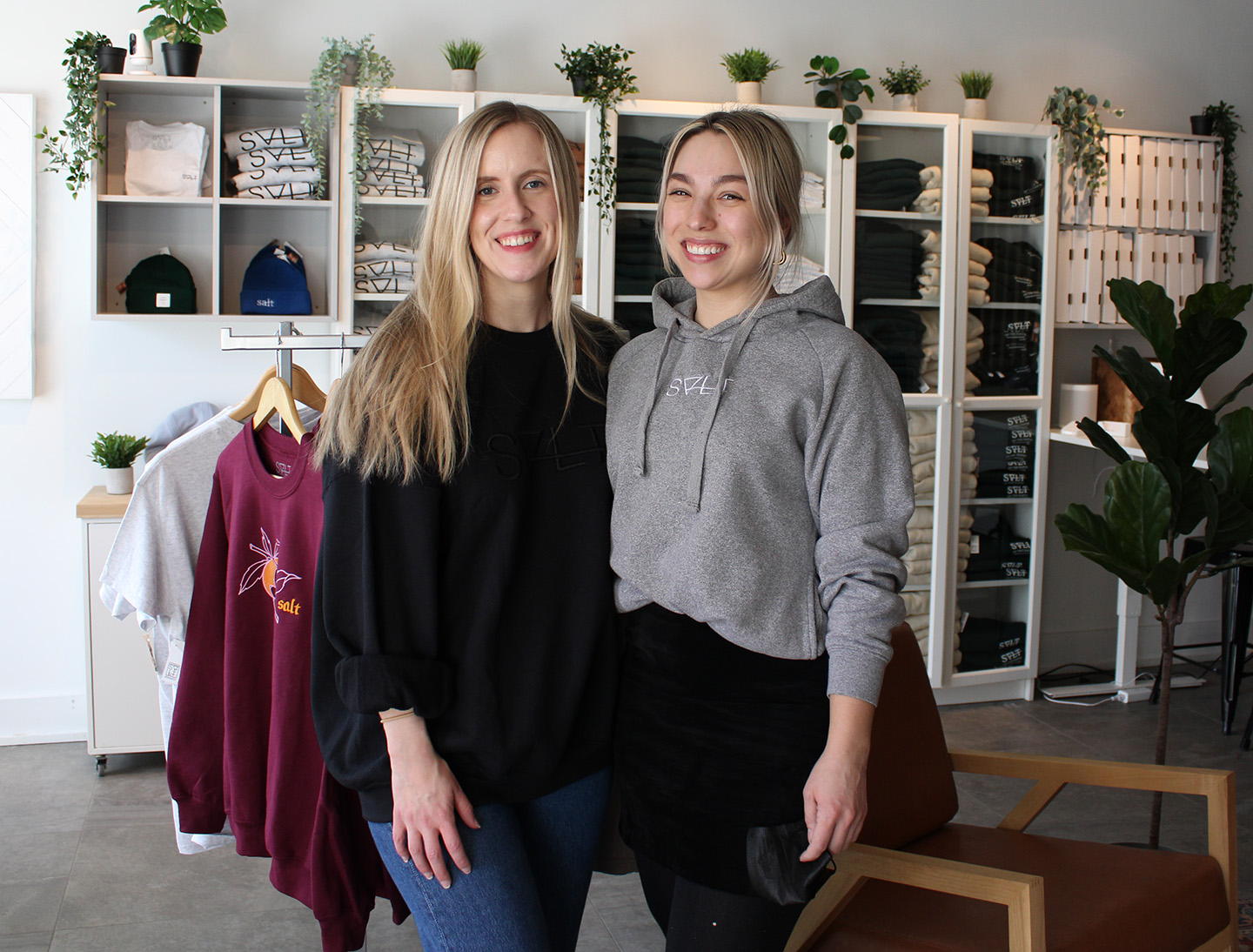The move into a more sustainable and environmentally-friendly fashion is part of a local brands mantra.

Arlette Lazarenko
Kicker
Lauren Saunders and Emily Evans, co-founders of SALT, a clothing brand and shop based in St. John’s, believe convincing people to shift their mindset over to slow fashion is done by gentle persuasion that is led by personal example.
Slow fashion is a response to a throw-away fashion industry where clothes are cheaply made and end up in landfills far too quickly.
Saunders says they share their personal views through their stories.
“We don’t try to pressure people either way, so sometimes sharing our values can make people think a little differently around fast fashion,” said Saunders.
Evans says more people are starting to understand that when they buy relatively more expensive clothing with good, durable fabric, they are making an investment. It’s like buying a quality piece of furniture for their homes, she says.
“When you imagine having something for that long, you want to spend a little more on it because you know it’s going to last and look just as good as the day you bought it, and that feeling gives you pride,” Evans said.
For Saunders and Evans, their values of doing business with little waste as possible are what guide their decisions. Friends since a young age, they co-founded SALT in 2017.
They created a program where customers can return used and worn SALT items for store credit. The returned items are repurposed into new products.
SALT also repurposes items that aren’t sold.
“This can cause a few headaches when it comes to storage, because some clothes don’t sell for a couple of seasons, but we aren’t willing to let them go. We find other ways to use them,” said Saunders.
Stephanie Stoker is an instructor in the textile studies program at College of The North Atlantic. She said the materials used to make clothing can be just as important.
“Harsh fabrics like polyester hurt the environment because they have to be heavily produced in order to be made into a thread,” Stocker said.
Polyester is a synthetic fibre that is usually derived from petroleum, but can also be made from recycled plastic.
“Once you have that clothing every time you wash it, micro-plastic from its fibres goes into waters and ends up in our oceans, hurting the environment. So you can recycle a bunch of plastic bottles and feel good about yourself but then wear the plastic bottles when you wear something made of polyester. It’s a double-edged sword,” Stocker said.
Saunders and Evans created a sister brand called SALTLAB where clothes are created exclusively in their shop and are made with almost entirely organic matter. The clothes are customized and only made when there is an order, this way they minimize waste.
The pair of entrepreneurs envision a future where all their products are made in Canada with sustainable materials.
“The decision to open SALTLAB wasn’t a great decision financially, because it was more expensive, but it was important to us because it allowed us to open many doors for SALT to become what we envision it to be,” Evans said.




Be the first to comment